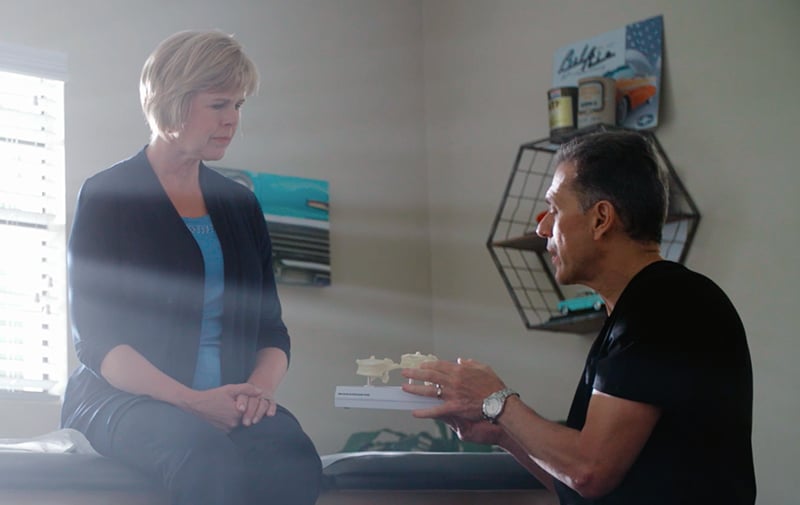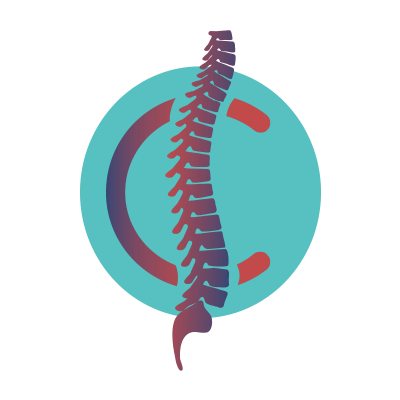Posterior Cervical Decompression and Fusion
Citrus Spine Institute specializes in spinal procedures, including posterior cervical decompression and fusion. Learn about this procedure and how it can improve your quality of life.

What Is Posterior Cervical Decompression and Fusion?
A posterior cervical decompression and fusion, also known as PCDF, helps alleviate pressure on the spinal cord and nerve roots, stabilize abnormal motion, and correct neck instability. This procedure is designed to help you find relief from your current symptoms and prevent your condition from worsening.
Cervical decompression and fusion can be achieved by both an anterior and posterior approach. Posterior cervical decompression and fusions are performed by approaching the spine from the back of the neck, whereas the anterior version of the procedure approaches the spine from the front of the neck. At Citrus Spine Institute, we specialize in both approaches.
Learn more About Posterior Cervical Decompression and Fusion
Your cervical spine is the region of the spine located in your neck, starting at the base of your skull and ending at your upper back, consisting of seven vertebrae. Typically, PCDF is used to treat severe cervical spinal cord compression and cervical spine injuries. This compression can be a result of spinal tumors, disc degeneration, osteoarthritis, infection, scoliosis, rheumatoid arthritis, stenosis, infection, or a traumatic injury.
Symptoms that may indicate you need a PCDF procedure include:
- Neck pain and burning
- Tingling, weakness, or numbness in the arms
- Decreased fine motor skills (such as using a fork or writing with a pen)
- Balance disturbances
- Inability to walk
If you’re experiencing the above symptoms, consult with a spinal specialist to get a proper evaluation, diagnosis, and treatment plan specific to your unique condition.
PCDF is performed on the posterior (back) aspect of the cervical spine. The process may vary slightly depending on the cause of your spinal cord compression.
During the procedure, your surgeon will create an incision on the back of your neck. From there, they will decompress the spinal cord and use instrumentation to stabilize it.
The fusion part of the procedure happens as you recover. During the procedure, bone graft may be placed along the sides of the bones, helping them fuse together as you heal.
After spinal surgery, you will have some restrictions and limitations to ensure proper healing. While it’s normal to feel pain, stiffness, and soreness after surgery, this will get better with time. Your healthcare provider may prescribe antibiotics, over-the-counter medicines, and pain medications to reduce the risk of infection and help with pain management. They may also prescribe a cervical collar to provide support and stability for a few weeks as your neck heals.
After cervical spine surgery, you will be restricted from:
- Bending forward or backward or twisting your back or neck side to side
- Lifting, pushing, or pulling anything that weighs over five pounds
- Driving
- Strenuous physical activity
- Sitting for extended periods
You will also want to be sure to get plenty of sleep and rest, but staying sedentary for too long can cause stiffness. Take short walks to encourage healing and recovery. As you heal, your healthcare provider will progressively lift your restrictions and may even prescribe physical therapy to help you gain back strength, mobility, and flexibility in your neck.
It typically takes three months for the fusion part of the procedure to start, which can take between six months to a year to fully complete.
Recovering from spinal surgery isn’t one-size-fits-all, and your restrictions, limitations, and recovery time will vary. Whether you’re recovering from PCDF, or you’re caring for a loved one after surgery, make sure to follow all post-surgery instructions and attend all follow-up appointments for the best recovery and results.
Every surgical procedure comes with some level of risk. Your healthcare provider will discuss all of the risks particular to PCDF with you and will be able to provide more insight into the likelihood of complications based on your unique medical history and health status.
General risks of spinal surgery include blood clots, infection, poor healing, complications from anesthesia, excessive bleeding, a minimal decrease in spinal flexibility, and more. Risks particular to PCDF include nerve root and spinal cord damage, continued pain, or your condition coming back.
When it comes to spinal fusion, PCDF has proven to be highly successful.

The Citrus Spine Difference
For us, the patient remains the king, in everything that we do.
01
02
03
04
We perform many kinds of spinal procedures, including anterior cervical discectomy and fusion (ACDF). Dr. Toumbis decides what approach to use based on what is best for the patient and their specific condition.
What to Know Before Posterior Cervical Decompression and Fusion
In order to achieve the best surgical outcome, we highly recommend that patients have and maintain optimal body weight. You will also want to make sure you properly prepare your home to make life during recovery easier and reduce the risk of injury.
Discuss how to best prepare for your procedure with your doctor in the days and weeks before surgery. Follow their instructions and let them know of any changes in the days leading up to your surgery
Wondering If Posterior Cervical Decompression and Fusion Is Right for You?
The first step to finding out if posterior cervical decompression and fusion is right for you is to consult with a neck pain specialist. It’s important to contact an orthopedic spine surgeon who has the knowledge and experience to help you find the right solution. Schedule an appointment today to learn if PCDF is what you need to find relief.



